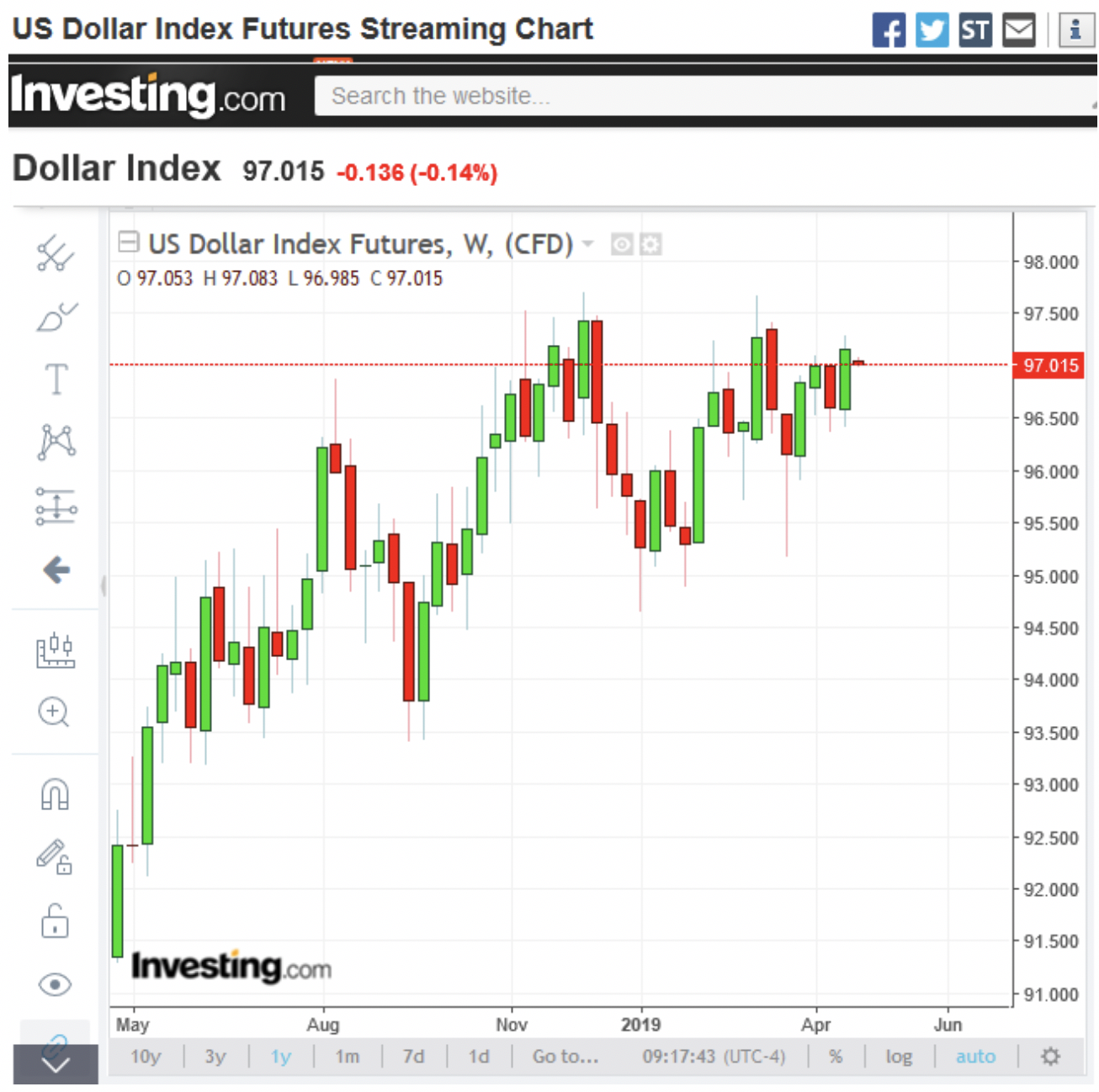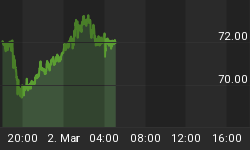So much for trade wars and tariffs being Wall Street’s boogie man.
When the Fed signaled a U-turn in its monetary tightening policy earlier this year, many experts opined that the move would finally rein in on a brawny greenback. Yet, the continued strength of the dollar has left business leaders baffled and is starting to make a serious dent in U.S. companies’ earnings.
Earnings season is truly underway with the market bracing for the busiest week.
A handful of companies have already turned in their scorecards and company executives rendered their verdict: currency headwinds are responsible for the biggest negative impact on earnings, beating higher wages and rising cost of raw materials.
More than 140 S&P 500 companies are scheduled to release their quarterly earnings this week, including Tesla Motors, Microsoft, Facebook, Twitter, Verizon, Coca Cola and Procter & Gamble. Expectations for the earnings season are low, with analysts forecasting a 4.2 percent drop in profits partly due to currency headwinds.

(Click to enlarge)
Source: FactSet
The dollar has rallied 2.5 percent in the year-to-date, which has come as a surprise to many since low interest rates are usually accompanied by a weaker currency.
A 2.5 percent increase might not sound like much, but is pretty dramatic in the otherwise sleepy world of currencies. A strong dollar makes U.S. exports less competitive and can take a huge chunk off the profits of U.S.-based multinationals.

(Click to enlarge)
Source: Investing.com
What’s particularly worrying is that the dollar has been growing stronger against emerging currencies such as the Chinese yuan where the country generates significant revenue. Related: U.S. Slaps New Sanctions On Cuba
Last quarter, Apple reported a 27 percent revenue contraction in China partly caused by a strong dollar. Multinational companies like Apple do not usually adjust product prices in overseas markets to reflect currency fluctuations, and a climbing dollar can raise the price of the iPhone considerably.
Of course, the fact that the US and China are still embroiled in a protracted trade war did not help Apple’s case, either.
A host of old-line companies such as 3M, Caterpillar, Johnson & Johnson and United Technologies also suffered a similar fate. Many Dow Jones components are companies that generate a significant amount of their sales in foreign markets. Those are stocks that most average investors have some exposure to through popular ETFs or mutual funds in 401(k) accounts or IRA.
The dollar is still king
Whereas the Fed has slammed the brakes on its rate hike cycle, actions outside its jurisdiction are not doing it any favors with major central banks taking measures likely to weaken their own currencies. For instance, the European Central Bank (ECB) is likely to take more stimulus measures to support growth in Italy, Germany and Sweden with the Bank of Japan expected to follow suit.
Stimulus matters aside, the strength of the dollar almost seems assured on a long-term basis. A cursory assessment of the global economy might find the US a less than ideal candidate as caretaker of the planet’s ultimate form of money.
After all, it’s sitting an enormous pile of debt--$22 trillion and rapidly-expanding—while its banking sector is only a decade removed from the worst financial crisis in the post-war era. Meanwhile, its proudly nationalist president continues to breach the norms of international relations with alarming alacrity.
Related: The Unstoppable Electric Bus Revolution
Yet in recent years the dollar’s stature as a safe haven in times of crisis, the favored repository for savings and the key form of exchange for key commodities like oil has only grown. The endearing potency of the greenback enables Treasury to find buyers for government bonds cheaply, which they buy using dollars thus making the currency even stronger in a big virtuous cycle.
No other currency comes close to usurping the dollar’s global role. China has tried to elevate the role of the renminbi to reflect its stature as a world power, setting up foreign exchange arrangements with scores of countries including Britain, Canada and Brazil and championing global infrastructure projects. Yet, its unfolding economic slowdown and growing unease over its investments which are increasingly viewed as a new form of colonialism have put paid those efforts.
A relatively strong economy paired with strong employment makes the US a bastion of stability for foreign investors. As long as these factors persist, the dollar is likely to remain king.
By Alex Kimani for SafeHaven.com
More Top Reads From Safehaven.com
















